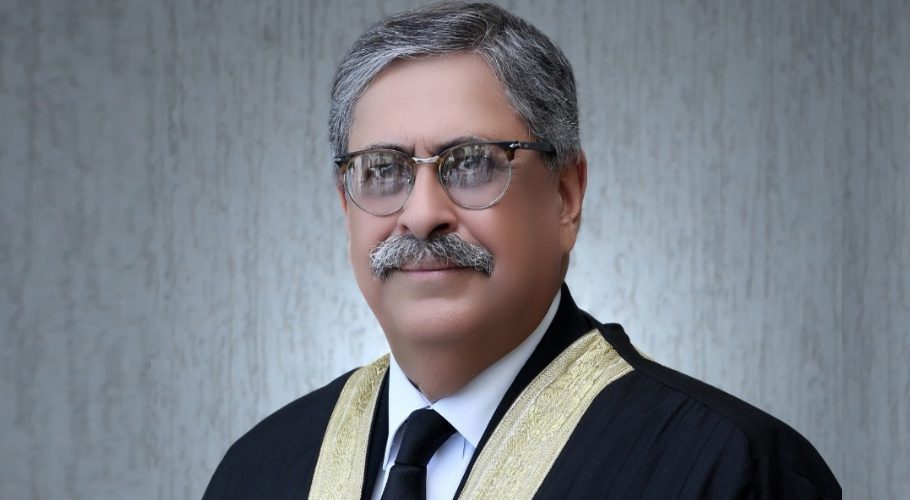ISLAMABAD: Controversy surrounding the Supreme Court’s verdict on Punjab elections took another turn after Justice Athar Minallah, in his detailed order, stated that the case was dismissed by 4 to 3 and clarified that “he had not recused nor had any reason to dissociate himself” from the case.
Justice Minallah stated that he agreed with Justice Yahya Afridi’s note on dismissal of petition and his reasoning in the short order was “persuasive” therefore he had no “hesitation in concurring with the decision”.
“I had reiterated my decision by recording my note in the order dated 24.02.2023. I have had the privilege of reading the detailed reasoning recorded by my learned brothers, Syed Mansoor Ali Shah and Jamal Khan Mandokhail, JJs and I agree with their opinion, particularly regarding the final outcome of the petitions and the suo motu assumption of jurisdiction by a majority of 4 to 3 because this was the understanding in the meeting held in the anteroom on 27.02.2023. It is noted that I had not recused nor had any reason to dissociate myself,” said the judge in his detailed note.
Justice Minallah, was is among the judges who rejected the suo motu notice taken by the Chief Justice of Pakistan (CJP) Umar Ata Bandial regarding the delay in polls in Khyber Pakhtunkhwa (KP) and Punjab on the advice of a SC bench hearing the Ghulam Mehmood Dogar case.
Earlier, CJP Bandial had formed a nine-member bench to hear the suo motu case.
Two of the nine judges recused themselves from the case, while four — Justice Syed Mansoor Ali Shah, Justice Jamal Khan Mandokhail, Justice Yahya Afridi, and Justice Minallah — had dismissed the case.
In his note, Justice Minallah emphasised that “public trust and confidence” are “sacrosanct” for the judiciary to operate effectively.
“The legitimacy of the court’s verdict solely depends on the public’s belief that the Court is an independent, impartial, and apolitical arbiter of disputes between political stakeholders,” said the judge. He also explained that issue of elections in Punjab and Khyber Pakhtunkhwa was political and was being adjudicated by a high court.
The judge noted that the Supreme Court has remained at the centre stage of “unprecedented charged and polarised political milieu” since April of last year when former National Assembly deputy speaker dissolved the lower house.
The judge noted that Pakistan Tehreek-e-Insaf (PTI) Chairman Imran Khan decision to leave the National Assembly had “profound consequences”. He noted that with that decision President Arif Alvi invoked Supreme Court’s advisory jurisdiction for the interpretation of Article 63-A.
the former Islamabad high court chief justice stated that the verdict in the Article 63-A case of disregarding votes had a “profound” impact in a “highly charged and polarised political atmosphere”. He also noted that the review of the case was pending as well.
“The effects of the interpretation of Article 63A on the ensuing events were far-reaching for the polarised political stakeholders,” said Justice Minallah.


































